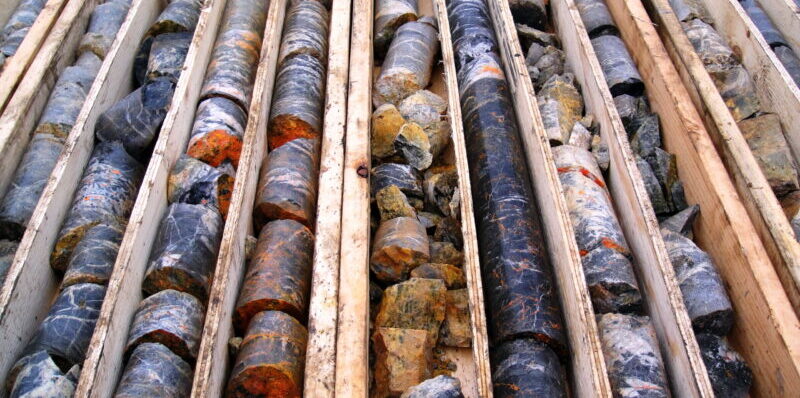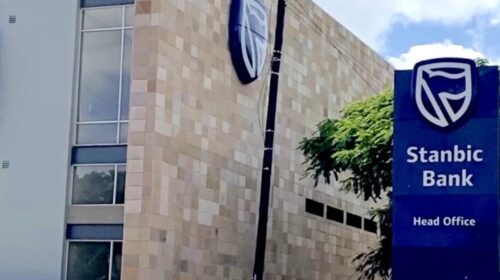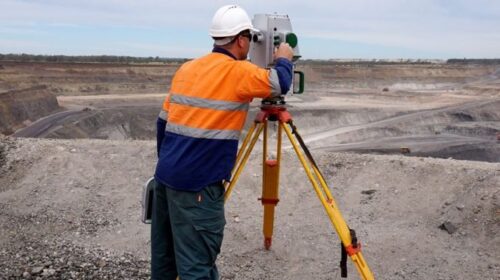Zambians ill-informed about their mineral wealth – ZCCM-IH minority shareholders
ZCCM-IH minority shareholders say Zambians are ill-informed about their mineral wealth and exploitation.
In a statement issued by Thierry Charles on behalf of Euronext Minority Shareholders of ZCCM-IH, a few weeks ago, the excitement caused by the exploitation of a Zambian gold deposit by a foreign company, in this case a Sudanese one, alongside ZCCM-IH, particularly astonished the stakeholders and demonstrated the lack of knowledge of the Zambian people in the mining sector.
“Our astonishment can be summed up as follows: how is it that there has been such popular unrest over the presence of foreign shareholders investing 2.5 million dollars in the gold sector, and that at the same time all these Zambians so devoted to their country and impatient for its development are indifferent to the total absence of profits declared by almost all the copper mines or the criminal complaint of ZCCM- IH for the theft of 520 million dollars by First Quantum Minerals in August 2019?” he wondered.
Charles stated that the reality of mining was that foreign companies own the mines and Zambians have only crumbs left.
He stated that since privatisation in the early 2000s when copper prices were at their lowest, the main mining resources had been exploited and implicitly monopolised by foreign mining companies (Chinese, Indian, Swiss, Canadian, Australian, etc).
“Not only copper but also other minerals and gemstones such as the famous emeralds. So far, however, few Zambians have taken offence at this… when the former ZCCM was privatised, the new entity ZCCM-IH retained minority shareholdings in the order of 10-20 per cent in the copper mines. These holdings were intended to generate revenues that were to be partly paid back to the Zambian state and used for new investments in the mining sector,” he stated.
“But in September 2019, the words of the chairperson of the select committee appointed to negotiate the sale of Konkola Copper Mines, Anthony Mumba, were eloquent: One thing which also caught my attention in the mining sector is that for the last 12 years ZCCM-IH holdings has various shareholdings in these companies. Now out of those nine or ten companies, only one company consistently paid the dividend to ZCCM holdings. Why only few people? I wonder how possible it is that an investor can keep pumping money into a company for years without making profits and yet not giving up? Why do we hear no one protesting the theft of $520 million by First Quantum…? $520 million… !!” he stated.
On gold, Charles stated that the government had decided to entrust the mining and marketing of Zambian gold to ZCCM-IH.
He stated that local artisanal miners were being offered a purchase at a more attractive price than that offered by unscrupulous traders.
Charles stated that ZCCM-IH also provides technical support to gold mining cooperatives from Rufunsa, Vubwi and Lundazi districts.
He stated that the gold produced would be sold to Bank of Zambia.
“However, ZCCM-IH’s financial capacity and expertise in this area is limited, so partnership with investors is essential for larger-scale mining. Usually, copper ore is accompanied by a by-product that is either gold or cobalt. For example, the Kansanshi mine produces around four tonnes of gold per annum, KCM and the Lubambe mine produces cobalt. Why does no one find it strange that some mines have no by-product or only a tiny amount?” he asked.
On Gemstones, Charles stated that any well-informed Zambian who was or had lived on the Copperbelt knows for a fact that the country had over 100 Emerald mines in the province alone.
“However, most of these mines, if not all, are in the hands of foreigners, including but not limited to Senegalese and Israeli, such as the iconic Grizzly Mining or UK Gemfields’ Kagem Mine. The only Zambian share is a 25 per cent stake in Kagem owned by IDC. Zambian emeralds are world famous. Why is nobody offended that the gemstone sector is not organised in cooperatives owned by Zambian small-scale miners? Why nobody reacted a few years ago when ZCCM-IH, then headed by Pius Kasolo, passed up the opportunity to acquire 50 per cent of the shares of Grizzly Mining, preferring to invest in non-mining and disastrous investments such as a bank and a milling company, or the far-fetched project envisaged in a cement plant?” he asked.
On oil, Charles said oil exploration and exploitation was still in its infancy in Zambia.
He, however, said the potential was promising, particularly on the borders of Angola.
ZCCM-IH has obtained a few blocks with licences but there again, the company would have to join forces with partners due to lack of sufficient equity capital.
Charles stated that the Zambian State benefits from some mining revenues such as the mineral royalty tax.
“But they are out of all proportion to the revenues obtained by the former ZCCM which was able to build and maintain houses for the miners, roads, schools and hospitals until copper fell to $1,500 per tonne (now around $6,000). In addition, with each economic crisis, Zambian miners are thrown out like handkerchiefs waiting for raw material prices to recover,” he stated.
He stated that there was lack of knowledge caused by incorrect or concealed information and misinformation from “so-called experts”.
Charles stated that people who present themselves as experts were distilling so-called knowledge and truths that do not correspond to reality.
“In early June, former ZCCM-IH CEO Dr. Pius Kasolo announces that there’s no gold mine in Zambia, it’s just exploration on Diamond TV’s COSTA programme. However, a few days before the words of Pius Kasolo, ZCCM-IH issued a call for tenders for equipment from the Kasenseli mine in the Mwinilunga district. On 27 April 2020, ZCCM Gold Company has injected approximately K45 million for the initial phase of the Kasenseli Gold Mine Project in Mwinilunga. With numerous press releases, ZCCM-IH clearly demonstrates that operations are also underway at Rufunsa. This plant is aimed at chemically processing the gold stock piles from two old gold mines, at Mumbwa, the setting up of a gold wash plant and other mining machinery to mine and process placer gold raw material,” he stated.
He stated that another so-called expert Chamber of Mines president Goodwell Mateyo regularly appears in the media.
“With our statement Chamber of Mines president Goodwell Mateyo outrageously misleads the Zambian people on 24 September 2019, we castigated his untruthful figures in support. His sole objective is to do everything possible to ensure that the unfair and shady game of mining companies continues at the expense of the Zambian people and the shareholders of ZCCM-IH, including NAPSA. Former mines minister Christopher Yaluma and the KCM disaster – already in 2014, the situation was worrying. Voices were being raised to nationalise the mine for serious breaches. At the same time, Vedanta boss Anil Agarwal revealed that KCM gave him $500 million per year and extra $1 billion,” he stated.
“But Christopher Yaluma had then vigorously protected Vedanta and said in a ministerial statement in front of parliamentarians instead of rushing to resolve the issues surrounding KCM through nationalisation, government has decided to engage KCM to ensure that operations are turned around for the company to become viable once again and that government will be undertaking regular audits at all the mines to ensure compliance and avoid the recurrence of the situation as at KCM. It is incomprehensible that the so-called thorough ‘regular audits’ did not make possible to anticipate the closure of two Mopani shafts, the decrepitude and finally the bankruptcy of KCM five years later,” he stated.
“Why no one was surprised by the total lack of transparency on audits? Why no one has protested that Christopher Yaluma has misled the Parliament and the parliamentarians, the Zambian miners, the contractors and suppliers, ZCCM-IH shareholders and the Zambian people.”
Charles stated that following the privatisation of the copper mines, foreign mining companies had demanded that any disputes that may arise with the GRZ or ZCCM-IH be settled by arbitration tribunals outside Zambia.
He stated that strict confidentiality was imposed on all disputes, preventing the Zambian people or minority shareholders from being informed leading to a total lack of transparency.
“In the KCM insolvency petition initiated by ZCCM-IH, Vedanta demanded that an arbitration tribunal in South Africa resolves the matter. We commend the voluntarism of Minister of Mines Richard Musukwa in recalling Zambia’s sovereignty in matters of justice and dismissing this procedure. Almost all the decisions taken in these arbitrations are unfavourable to Zambian interests and to ZCCM-IH in particular and are rendered after years of proceedings. Why does nobody protest against this lack of transparency and arbitration abroad for other ongoing proceedings?” he asked.
“We hope that our insights from this partnership in gold will provide greater insight into the mining sector. We deeply hope that all these people so dedicated to their country, having protested against a 2.5 million dollar partnership, are asking themselves questions about issues that can be counted in billions of dollars. Is it still tolerable for Zambians to be reduced to being the mere ‘Jerabos’ of their mineral wealth? Under the impetus of the board and new CEO Mabvuto Chipata, ZCCM-IH is taking its full part in the challenge despite a desire of some to financially suffocate the Zambian flagship company to prevent it from playing its role and from being a leading mining operator. Our company has refocused on mining and has returned to being a pure mining operator with a diversification of the minerals exploited. ZCCM-IH participates in the development of the country by developing green fields and involving the local population. Our company has invested about $1.5 million in setting up a wholly owned manganese mine in Serenje District of Central Province.”
Charles encouraged the management on the one hand to continue in this direction and on the other, to initiate very thorough forensic audits in the mining companies in which the company holds stakes.
Source: themustonline.com
![]()





